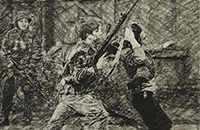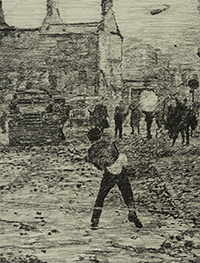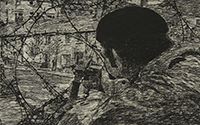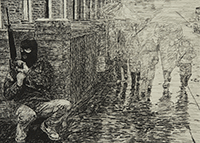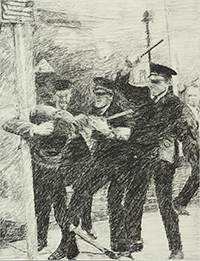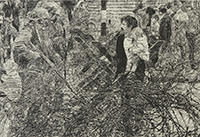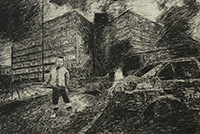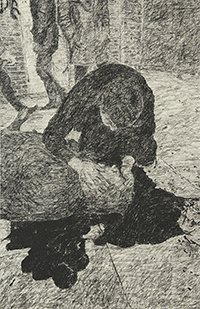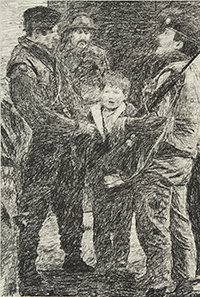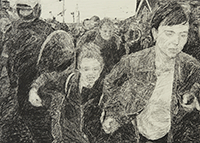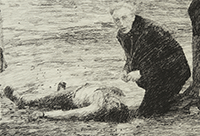Ní Saoirse go Saoirse na mBan
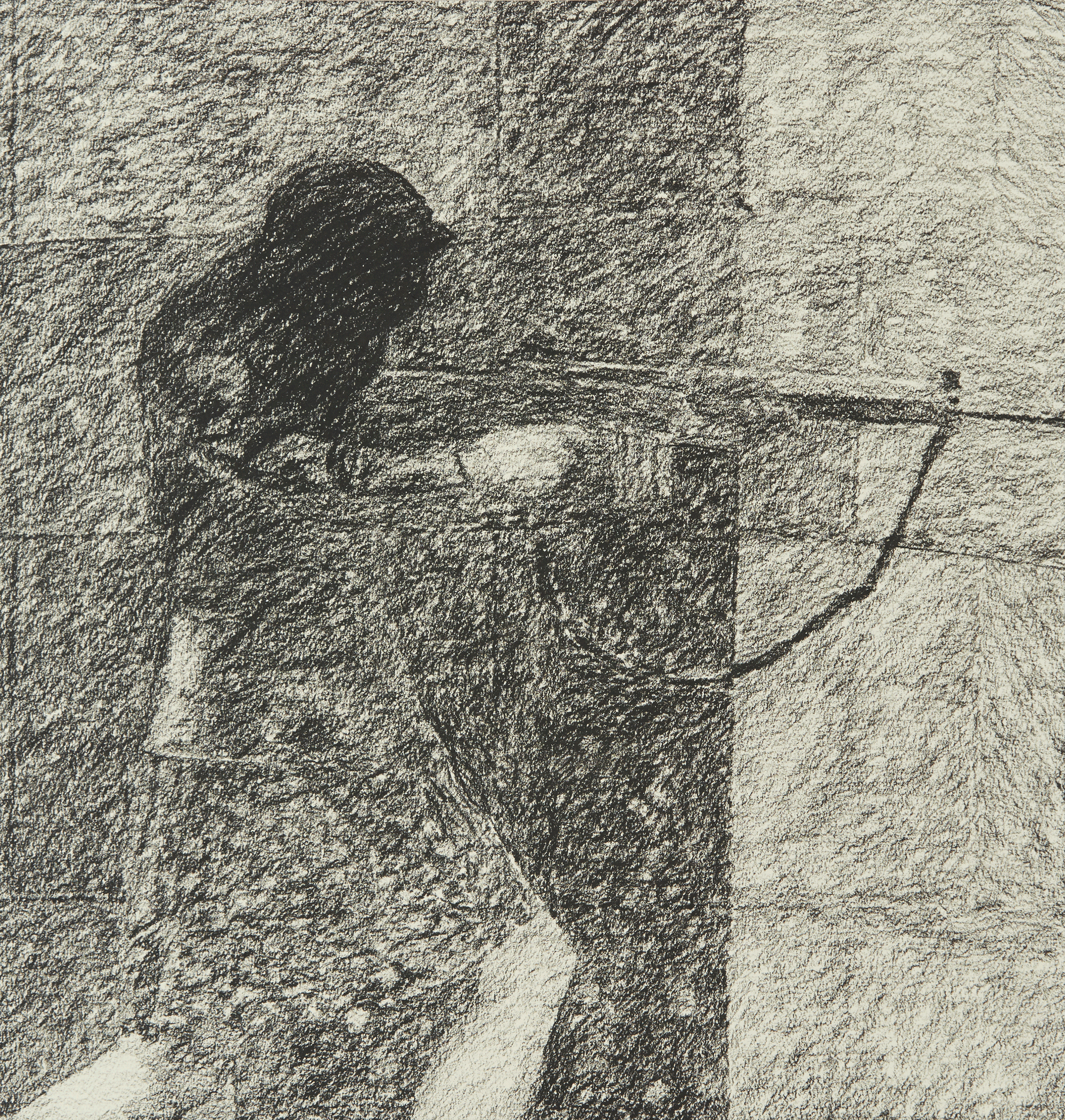
Ní Saoirse go Saoirse na mBan
(There is No Freedom Until the Freedom of Women)
Frequently the role of women in conflicts such as “The Troubles” is downplayed to limited roles such as grieving mother, young widow, or innocent victim. In Ireland, which is frequently viewed as a traditionally patriarchal culture, women have played substantial roles in the conflict as actors with agency from the beginning of the 20th century. The Cumman na mBan (The Women’s Council) formed in Dublin in 1914 and was involved in the Easter Rising of 1916 along side of the Irish Volunteers and Irish Citizens Army. Countess Constance Markievicz was a revolutionary Irish Nationalist and suffragette who took up arms in the Easter Rising and was sentenced to death, but the sentence was reduced due to her gender. She was also the first woman to be elected to the British House of Commons in 1918, a part of the formation of the first Dáil Éireann, and the first woman in the world to hold a cabinet position in a national government as Minister of Labour for the Irish Republic (1919-1922). As “The Troubles” were about to begin, there was no shortage of influential women.
Bernadette Devlin, was a psychology student at Queen’s University Belfast from a Nationalist community in County Tyrone and held a prominent role in a student based civil rights group called People’s Democracy. For her role in that group, she was excluded from the university. In 1916 she mounted an unsuccessful campaign against James Chichester-Clark in the Northern Ireland general election, but after George Forrest, MP for Mid Ulster, died, she stood for election in the by-election and defeated the Ulster Unionist Party Candidate. At age 21 she was the youngest MP at that point in time and held the record of youngest woman elected to the Westminster Parliament until 2015. She went against the mainstream Irish Republican policy of abstentionism. She sided with the residents of the Bogside and in 1969 was convicted of incitement to riot. She was re-elected in 1970. That year the City of New York gave Devlin a golden key to the city for her work as a civil rights activist. Devlin gave the key to the Black Panthers as a gesture of solidarity.
Devlin witnessed Bloody Sunday and became enraged that House of Commons speaker Selwyn Lloyd continually denied her the floor despite the parliamentary convention decree that any MP who witnessed an incident under discussion would be granted the opportunity to speak about it. When the Home Secretary in the Conservative government, Reginald Maulding, tried to justify the killings, arguing that paratroopers fired in self-defence on Bloody Sunday, Devlin slapped him across the face. In 1981 an assassination attempt was made on Devlin and her husband in her home by members of the UDA. Devlin was shot 14 times in front of her children. British soldiers were watching the home, but failed to prevent the Loyalist attack.
Mairéad Farrell was a member of the IRA and was imprisoned after attempting to bomb a hotel used by British soldiers. She was sent to Armagh Gaol in 1976. She refused to wear a prison uniform in protest of the British government’s revoking Special Category Status, thereby designating Republican prisoners as criminals as opposed to political prisoners entitled to some of the privileges of POWs as specified in the Geneva Convention. She was the second prisoner after Kieran Nugent to do so and the first woman to refuse prison clothes. Farrell instigated a no-wash protest in 1980. The women of Armagh Gaol refused to slop out their chamber pots, as opposed to risking attack by guards while slopping out. This meant that the women participating in the protest lived in cells coated with human waste. Farrell also launched a hunger strike to coincide with the men’s hunger strike in Long Kesh. In 1988 she was killed by the SAS in Gibraltar along with Seán Savage and Daniel McCann when it was believed that they were going to mount a car bomb attack on British military personnel. The three were found to possess no arms and no bomb was found in their vehicle.
Although many women were victims of violence during “The Troubles”, women were not exclusively victims, wives, and mothers; they were participants in revolutionary politics, civil rights movements, and even armed combat. The false dichotomy that war and violence is a product of and the exclusive domain of men and that women as mothers and nurturers can only be associated with peace, serves to reduce the perception of female agency in conflict and relegates women to passive rather than active roles. There were many visible female members of the IRA. Although there were also women involved on the Unionist side of the conflict, much less is known about female members of Loyalist paramilitary groups. It has been suggested by some academics that the heavily socialist values of Irish Republicanism allowed space for egalitarianism, which may explain why women in Irish Republican groups appear more prominent. However, this is not to say that female members of such Irish republican groups did not face any form of discrimination within their groups. In any case, it is important to recognise the role of women in the conflict in the North of Ireland as they have played a major part in the shaping of a transforming culture.


